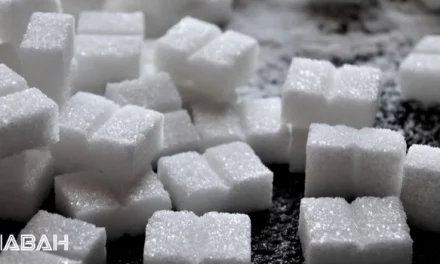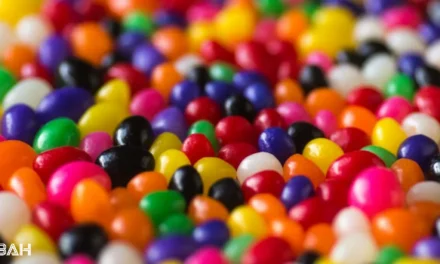As a consumer who values transparency and wants to make informed choices, I was curious to delve into the halal status of Jelly. In this article, I will uncover the truth behind Jellies halal certification, providing you with the knowledge you need to confidently enjoy these delectable treats.
What Muslims Need to Know
In Islamic law, there are clear guidelines on what foods and ingredients are permissible (halal) and impermissible (haram) for Muslims to consume. The distinction between halal and haram is an important aspect of practicing Islam.
Haram foods and ingredients include:
- Pork and pork products
- Alcohol and intoxicants
- Meat from animals not slaughtered according to Islamic dietary rules
- Blood and blood byproducts
Jelly is a common food product that is enjoyed around the world. The main ingredients in jelly are:
- Gelatin
- Fruit juice or flavorings
- Sugar
- Food coloring
- Acidifiers like citric acid
The halal status of jelly depends on the specific ingredients used, especially the type of gelatin. There is some debate within the Muslim community regarding whether certain types of gelatin are permissible.
This article will analyze the evidence on gelatin and other jelly ingredients to determine guidelines for choosing halal-certified jelly products.
What Is Gelatin
Gelatin is a colorless, flavorless food ingredient that gives jelly its smooth, gummy texture. It is obtained by boiling animal bones, skins, and tissues.
Gelatin is considered halal if derived from a halal slaughtered animal. Gelatin derived from pork is not halal.
There are two main sources of gelatin:
- Pig skin – This is definitively haram for Muslims to consume
- Cattle bones and hides – Gelatin from cattle slaughtered Islamically is considered halal by many scholars
However, there is disagreement about gelatin derived from animals not slaughtered according to Islamic rites. Some argue that gelatin undergoes such significant chemical changes that the origin no longer matters. Others contend that the source must still be halal.
The more correct view is that it is haraam, because the basic principle concerning things that may possibly be haraam is that they are haraam, until it is proven that they are halaal.
This debate demonstrates the complexity of determining the halal status of gelatin specifically and food ingredients generally.
Gelatin Sources
Gelatin is a natural protein derived from raw collagen, which is a safe byproduct of the meat industry. It contains eighteen amino acids, some of which are an essential part of a healthy diet. Gelatin produced in the United States comes primarily from pigskins or cattle bones. Pig, cow, and fish collagens are the primary sources of gelatin. Manufacturers produce gelatin by processing animal bones, cartilage, and skin. They may use the bodies of cows or fish, for example. Gelatin is usually obtained from cows or pigs.
Checking for Halal Gelatin
For Muslims who wish to avoid doubtful ingredients, there are several ways to check whether a particular jelly product contains halal gelatin:
-
Look for halal certification on packaging – Various organizations certify food products as halal.
Products with halal certification very likely use gelatin from halal slaughtered animals.
-
Contact the manufacturer – Consumers can call or email companies to inquire about the source of their gelatin. If the gelatin is from cattle hides, it is most likely halal. But companies may use pork byproducts as well.
-
Check ingredient lists – Gelatin may be listed by other names:
- Gelatin
- Hydrolyzed collagen
- Bone broth collagen
When in doubt, it would be best to avoid products that list these ingredients without halal certification.
Doing thorough checks is the best way to ensure the jelly products you consume contain halal ingredients.
Gelatin-Free Options
For Muslims who want to completely avoid the debate around gelatin, there are alternatives that use plant-based or fish-based substitutes:
-
Plant-based gums – These include:
- Pectin (from fruits)
- Agar (from seaweed)
- Locust bean gum
-
Guar gum
Plant gums can provide the jelling properties of gelatin without the ambiguity over halal status.
-
Fish gelatin – This is made from fish skins and bones.
Muslims are permitted to eat all types of fish. Therefore gelatine derived from fish is halal.
-
Halal-certified ingredients – Many gelatin substitutes are certified halal:
- Agar powder
- Carrageenan
-
Gellan gum
Choosing halal-certified alternatives guarantees their permissibility.
With plant and fish options readily available, Muslims can enjoy jelly products without questionable ingredients.
Other Jelly Ingredients
Aside from gelatin, jelly products contain other ingredients that factor into the halal analysis:
-
Sugar – Common sugar sources like cane sugar, beet sugar, and corn syrup are halal. But some products use alcohol-based extracts for flavoring which would be haram.
-
Fruit juice – Natural fruit juices used for flavor and color are halal. Artificial flavors and synthetic colors may be questionable.
-
Citric acid – This acidifier often comes from citrus fruits, which is permissible. But it can also be fermented from molasses which would require halal certification.
-
Pectin – This gelling agent from fruit is halal. Pectin derived from animal products would not be halal.
-
Food colorings – Organic, plant-based colors are halal. But artificial colors from questionable sources should be avoided.
Jelly products that contain artificial ingredients, chemical preservatives, alcohol, and animal-derived colorings are considered haram.
Checking all ingredients on a jelly product will provide certainty of its halal status.
Is Jelly Halal? – Frequently Asked Questions
What is gelatin?
Gelatin is a substance derived from the skin, bones, and connective tissues of animals, such as cows and pigs. It is commonly used in the production of food products, including jelly and candy.
Is gelatin halal or haram?
Gelatin is a controversial ingredient in halal dietary rules. The halal status of gelatin depends on its source and how it is produced. Some types of gelatin, particularly those derived from non-halal sources such as pigs, are considered haram (forbidden).
Can gelatin be halal?
Yes, gelatin can be halal if it is derived from halal sources and produced according to Islamic dietary laws. Halal gelatin is typically made from sources such as fish or bovine (cows) slaughtered according to Islamic principles.
What is the source of gelatin used in jelly?
The source of gelatin used in jelly can vary. It may be derived from bovine (cows), porcine (pigs), fish, or other sources. To determine if the jelly is halal, it is important to know the source of the gelatin and how it was produced.
Is fish gelatin halal?
Yes, fish gelatin is generally considered halal and can be used in halal food products. However, it is always recommended to check the halal certification or consult with a knowledgeable authority.
Is gelatin derived from bones and skin halal?
Gelatin derived from bones and skins of halal animals can be halal. However, if derived from non-halal sources, it would be haram. The halal status depends on the source and production method.
Can gelatin capsules be considered halal?
The halal status of gelatin capsules depends on the source of the gelatin used in their production. If the gelatin is derived from halal sources and produced according to Islamic dietary laws, the capsules can be considered halal.
Is gelatin produced by hydrolysis halal?
Gelatin produced by hydrolysis can be halal if it is derived from halal sources. Hydrolysis is a process of breaking down proteins, and if the original source is halal, the resulting gelatin would also be halal.
Are there alternatives to Jelly
Yes, Pectin is a natural substitute for jelly derived from fruit, especially green apples. It is suitable for preparing jams and marmalades, but also for yogurt and puddings.
Conclusion
In summary, here are the key points that determine whether a jelly product is halal:
-
Gelatin is a controversial ingredient – it must be derived from halal slaughtered animals to be considered halal. Fish gelatin is permissible.
-
Halal certification on packaging is reliable confirmation that gelatin and other ingredients are from halal sources.
-
Many alternatives exist, like plant-based gums and certified halal gelatin substitutes. These avoid the gelatin controversy altogether.
-
Other jelly ingredients may require scrutiny, including artificial colors, flavors, preservatives, etc. Natural fruits and vegetable ingredients are halal.
The evidence indicates that it is possible to enjoy halal-compliant jelly products, but care must be taken to verify the source and composition of ingredients. Muslims should look for halal certification from trusted organizations when possible. Reading ingredient lists thoroughly also helps identify any doubtful or impermissible contents. With sound knowledge of jelly production and ingredients, Muslims can make informed choices to maintain a halal diet.





